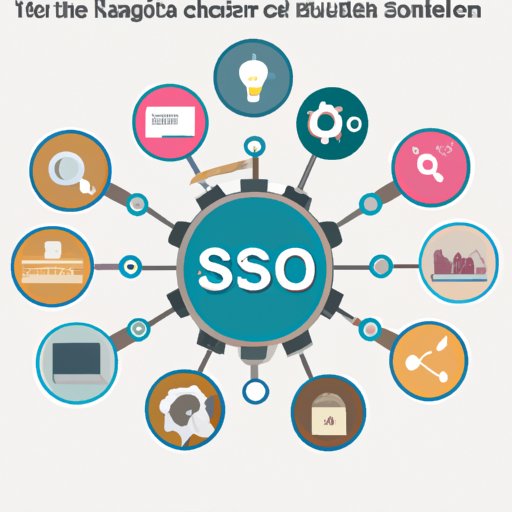Introduction
Search engine optimization (SEO) is an essential part of running a successful website or online business. It involves optimizing your website in order to increase its visibility in search engine results pages (SERPs). However, it can be a time-consuming process, which is why many businesses are turning to automated SEO as a way to save time and effort.
Utilize Automated SEO Tools
Automated SEO tools are designed to make the process of optimizing your website easier and more efficient. They can help you identify areas for improvement, track and analyze your website performance, and more. There are a variety of automated SEO tools available, so it’s important to do your research and find one that best meets your needs.
Popular automated SEO tools include Ahrefs, SEMrush, Moz Pro, and SpyFu. Each tool has its own unique features and benefits, so it’s important to compare them before making a decision. Some factors you should consider when choosing an automated SEO tool include cost, ease of use, customer support, and the types of analysis and reporting it provides.

Create a Content Strategy with Automation in Mind
Creating a content strategy is an important part of any SEO campaign. It involves developing a plan for creating and distributing content that will attract visitors to your website and improve your rankings in SERPs. By leveraging automation, you can streamline the process and make it easier to manage.
When creating a content strategy, it’s important to consider your target audience, the topics you want to write about, the type of content you want to create, and the channels you will use to promote it. You should also think about how you will measure the success of your content and what strategies you will use to optimize it for SEO.
To make the process of creating content easier, you can use automated tools such as BuzzSumo, which can help you identify trending topics and popular content ideas. You can also use automation to schedule posts, monitor engagement, and analyze the performance of your content.
Use Automation to Monitor Your Website Performance
Once you have created a content strategy and implemented it, you need to monitor the performance of your website to ensure it is meeting your goals. Automation can help you track key metrics such as pageviews, bounce rate, and average session duration. It can also help you analyze the data to identify areas of improvement and adjust your strategy accordingly.
Tools such as Google Analytics and Hotjar are designed to provide useful insights into your website performance. They can help you identify which pages are performing well and which ones need improvement. Additionally, they can provide information on where your visitors are coming from and how they are interacting with your website.
Automate Link Building Efforts
Link building is an essential part of any SEO strategy. It involves getting other websites to link back to your own, which can help improve your rankings in SERPs. Automation can help you streamline the process and make it easier to build high-quality links.
A few automated link building strategies you can use include guest blogging, broken link building, and outreach campaigns. When using these strategies, it’s important to assess the quality of the links you are building and ensure they are coming from reputable sources. Additionally, you should avoid engaging in any link schemes or buying links, as this can lead to a penalty from search engines.

Leverage Automation to Analyze Your Competitors
Analyzing your competitors is a great way to gain valuable insights into their strategies and identify areas where you can improve. Automation can help you gather data quickly and easily, allowing you to stay one step ahead of the competition.
Tools such as SimilarWeb and SEMrush can help you get an overview of your competitors’ websites and analyse their performance. Additionally, you can use these tools to track keyword rankings, identify link opportunities, and compare your website against theirs.

Automate Your Social Media Presence
Social media is an important part of any SEO strategy. It helps you connect with your audience and reach a wider audience. Automation can help you manage your social media accounts more efficiently and ensure your content reaches the right people at the right time.
Popular social media automation tools include Hootsuite, Buffer, and Sprout Social. These tools allow you to schedule posts in advance, track engagement, and measure the performance of your content. Additionally, they can help you identify influencers and engage with them to build relationships and drive traffic to your website.
Conclusion
Automating your SEO efforts can help you save time and effort while improving your website’s visibility and performance. Utilizing automated SEO tools, creating a content strategy, monitoring website performance, building links, analyzing competitors, and automating your social media presence can all help you maximize your website’s potential and stay ahead of the competition.
By leveraging automation, you can make the process of optimizing your website easier and more efficient. With the right tools and strategies in place, you can ensure your website reaches its full potential and achieves the results you desire.
(Note: Is this article not meeting your expectations? Do you have knowledge or insights to share? Unlock new opportunities and expand your reach by joining our authors team. Click Registration to join us and share your expertise with our readers.)
